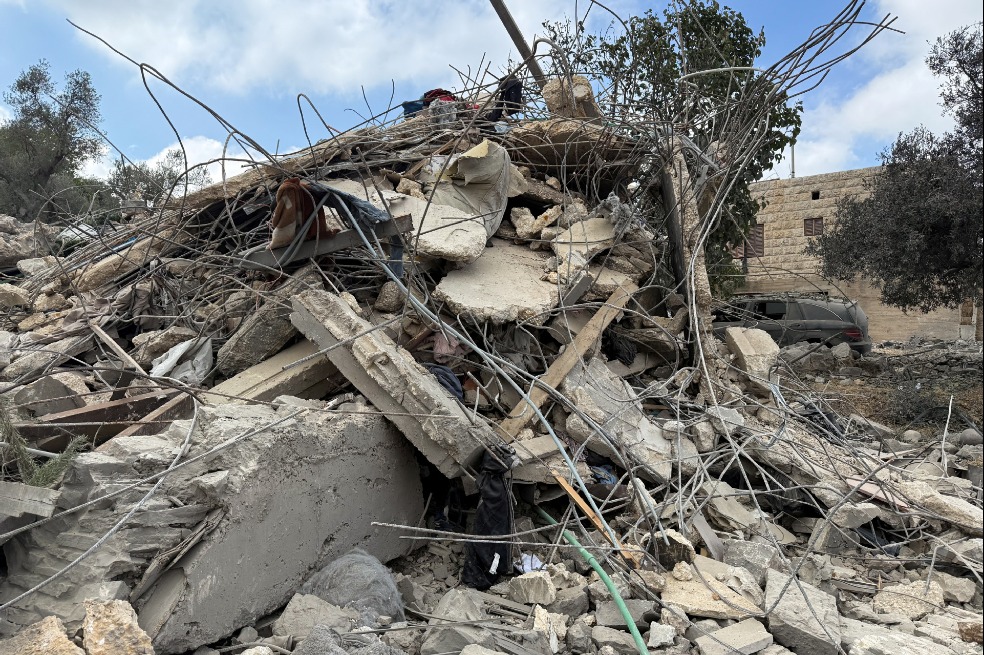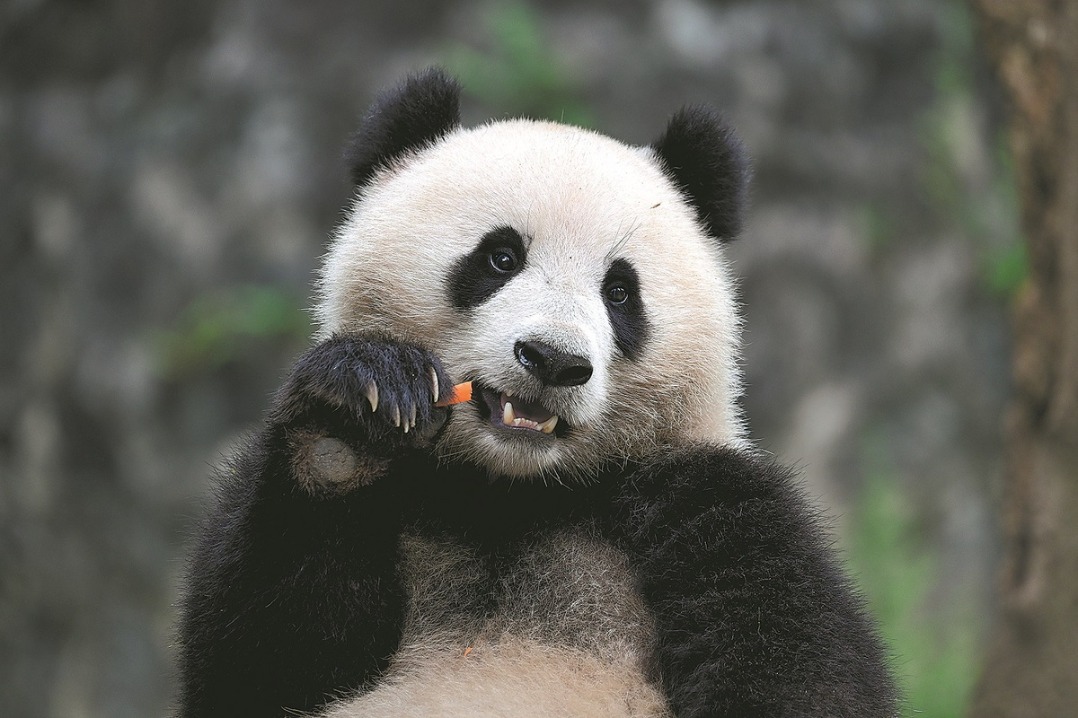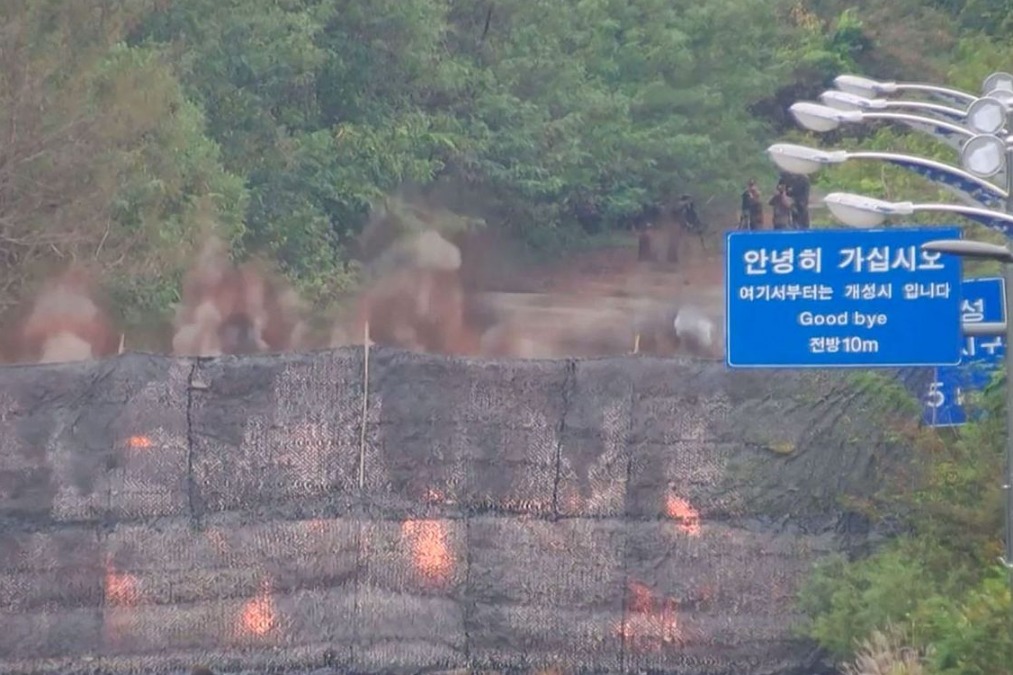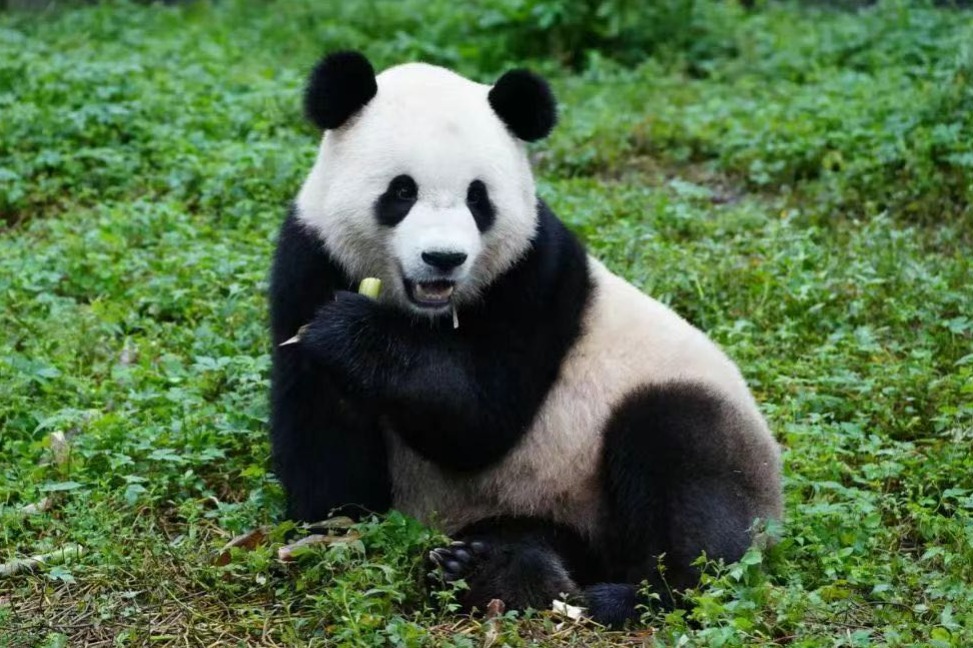Stories of Japanese WWII camp in China revealed at exhibition

An exhibition on China-US friendship at the Weixian Concentration Camp — in which Japanese fascists during World War II imprisoned about 2,000 Western nationals in Weifang, Shandong province — has opened in San Francisco.
Barely known to the West, the camp serves as a testament to the deep-rooted friendship between the Chinese and American peoples dating to 1942.
The history of the camp should never be forgotten by future generations, said Chen Baiwei, deputy director of the Shandong Foreign Affairs Office, who spoke to an audience that filled the WWII Pacific War Memorial Hall, the museum where the exhibition was hosted.
The exhibition contains seven units, using about 180 artifacts, pictures and documents including oral history to showcase and replicate the concentration camp.
Following Japan's invasion of China in 1931, the Imperial Army eventually penetrated the Shandong peninsula in 1937. In March 1942, the army looted several European-style missionary buildings and transformed the multifunctional complex — Courtyard of the Happy Way, as it was originally called — into a concentration camp.
Targeting Western expatriates from the US, the UK, Canada, Australia, New Zealand, the Netherlands and Belgium, the Japanese put more than 2,000 civilians, including more than 300 children, into the camp.
Inmates were mistreated — food was rationed, clothes were limited and cells were overcrowded. There was mandatory labor and mental burdens, such as isolation.
"You could only write short letters, only about a paragraph through the Red Cross (stationed in the Camp)," said John Stanley, professor at Kutztown University in Pennsylvania, a descendant of camp inmates, in explaining how the Japanese suppressed communications.
Against all odds, the light of humanity flickered — "wholehearted assistance" from local Chinese people in various formats and through combined channels empowered inmates.
Night-watch men between shifts helped relay SOS messages; farmers stuffed much-needed food into the hands of inmates; guerrilla forces managed to rescue prisoners, risking their own lives.
Mary Tavlor Previte, who was detained in the camp at age 9, later recalled,
"Here, in a place once filled with despair, I saw heroes planting seeds of hope."
Arthur William Hummel, the US ambassador to China from 1981 to 1986, was an inmate. In one of his recollections of the camp, he highlighted the solidarity and teamwork of the Chinese and American peoples when fighting Japanese fascism. He once said, "Even today, I feel very close to China. Whenever I have the opportunity, I go to China for visit."
The Chinese and American peoples, like others across the world, cherish and uphold peace, said Chen.
"Weifang city has been awarded the title of International City of Peace. … The Chinese people know full well the value of peace, and China will stay committed to the path of peaceful development."
Chen also said that "solidarity gives us strength", calling the camp a true record of the solidarity between international expatriates, including American expatriates, and the Chinese people in their fight against Japanese fascism during the war.
"History has proved that only solidarity can help mankind overcome difficulties and obstacles, and only solidarity can enable our global village to have a bright future."
Although the camp was shut down on Aug 17, 1945, following Japan's defeat in the Pacific, its historic significance is far-reaching and multifaceted, said Betty Yuan, one of the organizers of the exhibition.
"It is so touching to learn that in the 1940s … the Chinese people have devoted their lives to help, protect and save the Westerners, including Americans," said Yuan. "Stories happened there were less told in America, heroes there unsung."
Calling the 10-day exhibition "just a start to a great cause", Yuan said she felt an urgency to publicize the camp's history.
The camp has produced a deep bond of friendship between the Chinese and American peoples.
"Friendship needs to be passed down through generations. We need to carry on," said Yuan.
Kathleen Liu contributed to this story.


































